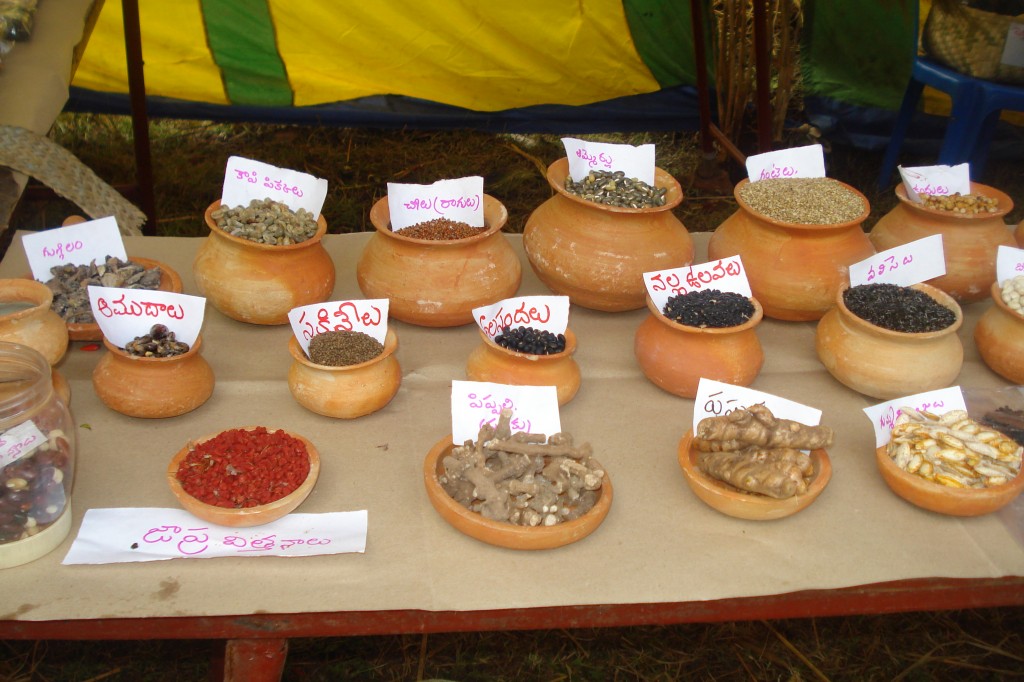Watching the graying man work for hours in the rice fields, you would never guess he is actually retired and has been for many years. Since 1998, Global Greengrants Fund grantee and retired teacher Natabar Sarangi has spent his days collecting native seeds across India. So far, he has collected over 350 seed varieties with the help of just a few employees. By 2012, he hopes to collect 500 different varieties.
Why? To save India’s traditional farming practices.
The Dark Side of the Green Revolution
In the 1960’s, the Green Revolution hit India and doubled crop productions. For a country with a long history of famine, the increase in crop yields was much-needed. But the new agriculture practices had a dire effect on small farmers and the biodiversity of crops.
The high yields were the result of monocultures—planting just one cash crop each year and using irrigation techniques to grow crops even in the dry season. Later, genetically-modified crops were introduced, endangering the already dwindling number of native plant species that were left. Such a lack of biodiversity also made Indian farmers more susceptible to the effects of changing weather patterns.
Natabar despises the high-yield farms that surround his own small, organic farm. He prefers to grow crops using seeds that have been around longer than he, and he’s nearly 80 years old.
Home-Grown, Time-Tested Solutions
In 2010 Natabar used a small grant from Global Greengrants Fund to collect seeds from farms all over India. He hired people to travel to different regions and increase the number of varieties he could conserve. He also hired 100 women to help clean and store the seeds in a seed bank.

Each year, Natabar gives the surplus of organic seeds to local farmers. In turn, they promise to return 4 kilograms of seeds after their harvest.
Upwards of 100 farmers come each year from local districts to get their seeds from Natabar. He trains those farmers on organic farming techniques, allowing the whole process to be sustainable and expanded across India.
And as if he isn’t doing enough, Natabar also uses his skills as a teacher to speak with students at local schools about conservation and organic farming. Natabar Sarangi is an example of what one individual or one group can do to create change on a local level with just a little bit of support.
For more information, check out this great video featuring Natabar and his work.
